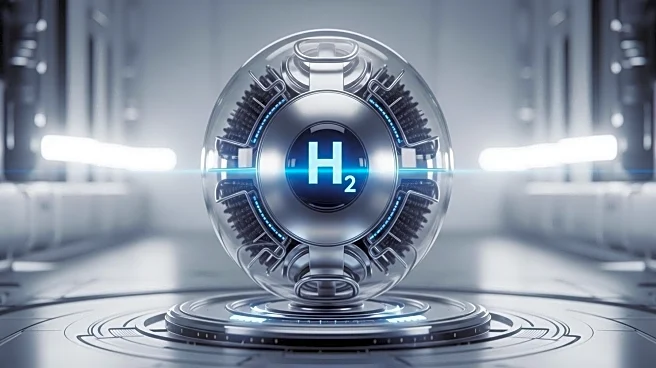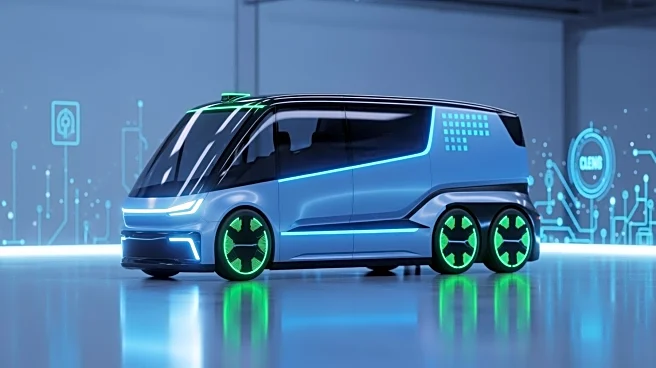What's Happening?
General Motors has announced the cancellation of its next-generation hydrogen program and the associated $55 million Detroit plant development with Piston. The planned 292,550-square-foot building was intended for a hydrogen fuel cell plant as part of a redevelopment project at the former State Fairgrounds in Detroit. This decision marks a significant shift in GM's strategy regarding hydrogen technology and its investment in alternative energy sources.
Why It's Important?
The cancellation of GM's hydrogen program and plant development reflects the challenges and shifting priorities in the automotive industry's pursuit of alternative energy solutions. Hydrogen technology, while promising, faces hurdles in terms of infrastructure and market adoption. GM's decision may influence other automakers' strategies, potentially leading to increased focus on electric vehicles and battery technology. This move could impact Detroit's economic landscape, as the planned redevelopment was expected to contribute to local growth and job creation.
What's Next?
GM's shift away from hydrogen technology may lead to increased investment in electric vehicle development and battery innovation. The company might explore new partnerships and research initiatives to enhance its EV offerings. Additionally, stakeholders in Detroit will likely assess the impact of the canceled plant on local economic plans and seek alternative development opportunities. The industry will watch for GM's next steps in its energy strategy, which could shape future trends in automotive technology.









